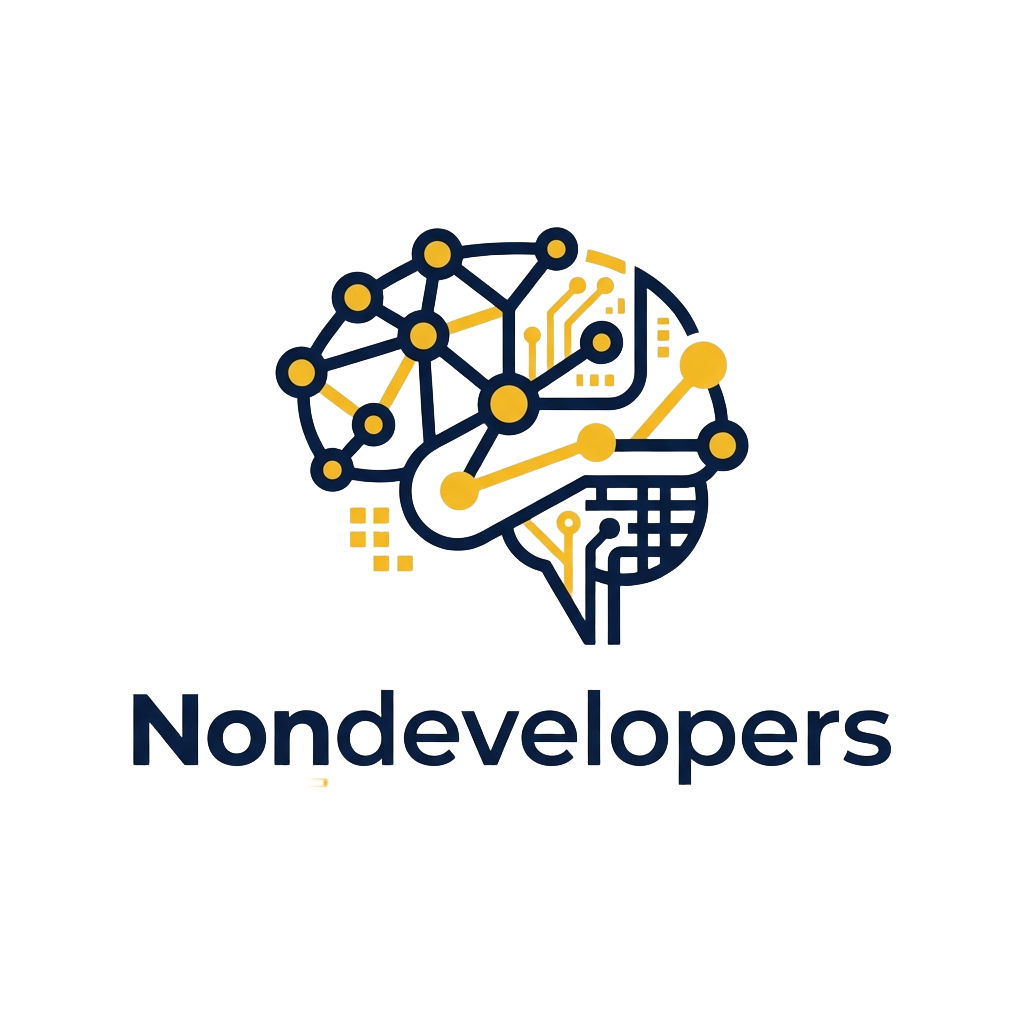Hacking is a term that interests everyone. But to become a skilled hacker, you need to master programming languages. Programming is vital for hacking as it allows hackers to understand code, write scripts, and automate tasks. With several programming languages to choose from, it can be overwhelming to decide which one to learn.
In this article, we will explore the best programming languages for hacking and help you make an informed choice. Whether you are a beginner or an experienced hacker, understanding the right programming language is essential to enhance your hacking skills.
Key Takeaways:
- Choosing the right programming language is crucial for hackers.
- Python, JavaScript, PHP, SQL, and C programming are popular choices for hacking.
- Understanding multiple programming languages enables versatility in hacking.
- Consider cybersecurity training programs and certifications to enhance your skills.
- Stay updated with the latest trends and techniques in the hacking community.
Why Programming is Important for Hackers
Hacking requires a deep understanding of programming languages, making coding knowledge essential for hackers. By analyzing code, hackers can identify vulnerabilities and exploit them effectively. Programming also enables hackers to write their scripts, modify existing ones, and automate tasks, enhancing their efficiency in hacking endeavors.
One crucial application of programming in hacking is penetration testing. By utilizing programming languages, hackers can comprehend the inner workings of target systems and applications, allowing them to identify weaknesses and carry out exploits with precision. This knowledge is invaluable for ensuring the security of networks and systems.
Automation is another key aspect in which programming plays a vital role in hacking. By programming scripts and tools, hackers can automate repetitive tasks, saving time and effort. This automation allows hackers to focus on more complex aspects of their work, such as analyzing code or developing innovative exploits.
"Programming is the language of hacking. Without a solid foundation in programming, hackers would struggle to navigate the complex world of cybersecurity and exploit vulnerabilities effectively."
The Importance of Analyzing Code in Hacking
Analyzing code is a fundamental skill for hackers. By understanding how software is structured and functions, hackers can identify potential weak points and craft exploits accordingly. Code analysis enables hackers to uncover hidden vulnerabilities, bypass security measures, and gain unauthorized access to systems and data.
Through code analysis, hackers can also assess the security of web applications and identify vulnerabilities like Cross-Site Scripting (XSS) or SQL injection. By examining the source code, hackers can identify weaknesses that could be exploited to compromise the application's security and gain unauthorized access.
The Role of Programming in Penetration Testing
Penetration testing is an important aspect of cybersecurity, aiming to identify and address potential vulnerabilities in systems. Programming is crucial in penetration testing, as it allows hackers to simulate real-world attack scenarios, uncover weaknesses, and provide recommendations for strengthening security.
By utilizing programming languages, hackers can create custom tools and scripts that automate the penetration testing process. These tools enable hackers to efficiently scan networks, identify vulnerabilities, and exploit them to assess the system's security. Programming knowledge is vital for successful penetration testing, as it empowers hackers to uncover vulnerabilities that may go undetected by standard security measures.
Automation: Enhancing Efficiency in Hacking
Automation plays a significant role in the field of hacking, allowing hackers to streamline their operations and increase efficiency. By programming scripts and tools, hackers can automate repetitive tasks such as reconnaissance, information gathering, and vulnerability scanning.
With automation, hackers can focus on more challenging aspects of their work, such as analyzing code or developing sophisticated exploits. This not only saves time but also enables hackers to tackle complex hacking scenarios more effectively. Automation provides hackers with a competitive edge, as they can complete tasks faster and execute attacks with greater precision.
| Programming Language | Application in Hacking |
|---|---|
| Python | Extensively used for exploit writing and automation tasks. Python has a vast community that provides ready-made modules for hacking. |
| JavaScript | Popular for hacking web applications, especially for cross-site scripting attacks. JavaScript allows hackers to manipulate the behavior of web pages and compromise their security. |
| PHP | Primarily used for web hacking, PHP enables hackers to exploit vulnerabilities in web domains and perform various attacks. |
| SQL | Crucial for database interaction and SQL injection attacks. SQL allows hackers to manipulate databases and gain unauthorized access. |
| C programming | Used for exploit writing, accessing hardware, and creating malware. C programming provides low-level control and flexibility in hacking endeavors. |
Programming languages are the foundation of hacking, enabling hackers to analyze code, automate tasks, and exploit vulnerabilities effectively. The knowledge of programming languages such as Python, JavaScript, PHP, SQL, and C programming is essential for hackers to navigate the complex world of cybersecurity. By mastering programming, hackers can enhance their skills, adapt to different systems, and stay at the forefront of the ever-evolving field of hacking.
Top 5 Best Programming Languages for Hacking

When it comes to hacking, having the right programming language in your arsenal can make all the difference. In this section, we will explore the top 5 programming languages that are widely regarded as the best for hacking. These languages offer a range of capabilities and functionalities that are essential for hackers to exploit vulnerabilities, write exploits, and automate tasks.
Python
Python is undoubtedly one of the best programming languages for hacking. It is highly versatile and offers a wide range of libraries and frameworks that make it an ideal language for exploit writing. The extensive community support and availability of ready-made modules make Python a favorite among hackers. With Python, hackers can easily analyze code, write scripts, and automate tasks, making it an essential language in the hacking toolkit.
JavaScript
JavaScript is another popular language for hacking, particularly when it comes to web applications and cross-site scripting attacks. With its ability to manipulate web elements dynamically, JavaScript allows hackers to exploit vulnerabilities in web applications effectively. Its versatility and widespread use on the web make it an important language to learn for any aspiring hacker.
PHP
PHP is a server-side scripting language commonly used for web hacking. With its wide adoption in web development, PHP offers hackers ample opportunities to exploit vulnerabilities in web domains. From manipulating databases to compromising web applications, PHP provides a powerful toolkit for hacking web-based systems.
SQL
SQL (Structured Query Language) is crucial for database interaction and widely used for exploiting vulnerabilities through SQL injection attacks. Understanding SQL allows hackers to manipulate databases, retrieve sensitive information, and gain unauthorized access. For any hacker looking to target systems with a database backend, SQL is a must-learn language.
C Programming
C programming is a low-level language that offers hackers direct access to hardware and allows for the creation of malware. While it may not be as beginner-friendly as other languages, C programming is powerful for writing exploits and carrying out advanced hacking techniques. Its efficiency and control over system resources make it a valuable language for hackers who need precise control over their code.
By mastering these top 5 programming languages for hacking, hackers can enhance their capabilities in exploit writing, vulnerability discovery, and automation. However, it's essential to note that hacking is a constantly evolving field, and staying up to date with emerging languages and technologies is crucial for continued success.
| Programming Language | Primary Use |
|---|---|
| Python | Exploit writing, automation |
| JavaScript | Web application hacking, cross-site scripting |
| PHP | Web hacking, database manipulation |
| SQL | Database interaction, SQL injection attacks |
| C Programming | Exploit writing, low-level hacking |
Additional Programming Languages for Hacking
While the top 5 programming languages mentioned above are widely regarded as the best for hacking, there are several other languages that hackers frequently utilize for different purposes. Some of these additional languages include:
- Ruby: Used for corporate system exploitation and script writing.
- Perl: Valued for exploit writing and manipulating Linux text files.
- HTML: Useful for compromising web applications and developing hybrid mobile and desktop apps.
- Assembly: A low-level language used for hacking primitive systems, creating malware, and reverse engineering.
These additional languages offer unique capabilities and can be valuable additions to a hacker's toolkit, depending on the specific target or scenario.
Additional Programming Languages for Hacking

In addition to the top 5 programming languages for hacking, there are several other languages that are popular among hackers. These languages provide specialized functionalities that cater to specific hacking scenarios. Let's explore some of these additional languages:
Ruby
Ruby is a dynamic, object-oriented programming language known for its simplicity and readability. It is widely used by hackers to exploit corporate systems and write powerful scripts. Ruby's expressive syntax and extensive library ecosystem make it a valuable tool for hackers targeting complex systems.
Perl
Perl is a versatile programming language that has gained popularity in the hacking community due to its strong text manipulation capabilities. It is particularly valued for exploit writing and manipulating Linux text files. Perl's regular expression support and powerful scripting abilities make it an excellent choice for hackers dealing with intricate file structures.
HTML
HTML (Hypertext Markup Language) may not be traditionally considered a programming language, but it plays a critical role in hacking web applications. Hackers leverage HTML to compromise vulnerable web apps and carry out attacks like cross-site scripting (XSS). Additionally, HTML is essential for developing hybrid mobile and desktop applications, making it a useful language for hackers interested in app compromise.
Assembly
Assembly language is a low-level programming language that allows direct access to a computer's hardware. It is widely used in hacking for low-level tasks, such as exploiting primitive systems, creating malware, and reverse engineering. While Assembly is considered challenging to learn, it provides hackers with unparalleled control and precision.
By expanding their arsenal of programming languages to include Ruby, Perl, HTML, and Assembly, hackers can enhance their skills and tackle a wider range of hacking scenarios. Each language brings unique capabilities and advantages that give hackers an edge in their exploits and enable them to adapt to different systems and challenges.
| Language | Functionality |
|---|---|
| Ruby | Exploiting corporate systems, writing scripts |
| Perl | Exploit writing, manipulating Linux text files |
| HTML | Web app compromise, hybrid app development |
| Assembly | Low-level hacking, malware creation, reverse engineering |
Importance of Learning Multiple Programming Languages for Hacking
When it comes to hacking, learning multiple programming languages is of utmost importance. Why? Because different systems require different languages to exploit vulnerabilities effectively. By acquiring knowledge in various hacking languages, hackers can equip themselves to handle a wide range of hacking scenarios, making them more versatile and adaptable.
By using different languages for different systems, hackers can take advantage of the specific strengths and features that each language offers. For example, Python is highly regarded for its extensive library of ready-made modules, making it an excellent choice for exploit writing. JavaScript, on the other hand, is popular for hacking web applications and carrying out cross-site scripting attacks.
Being equipped with multiple hacking languages allows hackers to broaden their skillset and approach hacking from different angles. It enables them to analyze code, write scripts, and manipulate systems more efficiently. With this versatility, hackers can navigate complex targets and adapt to various situations, making them more effective in their pursuits.
| Benefits of Learning Multiple Hacking Languages | Examples of Hacking Languages |
|---|---|
|
|
Learning multiple hacking languages not only equips hackers with a broader range of skills but also prepares them to tackle various hacking scenarios. It allows them to stay ahead of evolving security measures and enables them to think creatively to overcome challenges. So, if you're serious about becoming a skilled hacker, it's crucial to invest time and effort into learning multiple programming languages.
Cybersecurity Training Programs and Certifications
In order to pursue a successful career in cybersecurity, it is essential to acquire the necessary knowledge and skills through training programs and certifications. These programs provide comprehensive training in various aspects of cybersecurity, equipping individuals with the expertise required to tackle modern-day security challenges.
One popular option for cybersecurity training is the Certified Ethical Hacking Course. This program covers a wide range of topics including vulnerability assessment, network security, penetration testing, and ethical hacking techniques. It focuses on practical skills and hands-on experience, allowing participants to gain real-world insights into cybersecurity.
Another notable training program is the Cyber Security Expert course. This course delves deeper into advanced concepts such as threat intelligence, incident response, secure coding, and cryptography. It provides participants with a thorough understanding of cybersecurity principles and methodologies, preparing them for complex security scenarios.
| Training Program | Description |
|---|---|
| Certified Ethical Hacking Course | A comprehensive program covering vulnerability assessment, network security, penetration testing, and ethical hacking techniques. |
| Cyber Security Expert course | An advanced course exploring concepts such as threat intelligence, incident response, secure coding, and cryptography. |
Obtaining relevant certifications in the field of cybersecurity is highly regarded and can significantly enhance job prospects. Certifications like CompTIA Security+, Certified Ethical Hacker (CEH), Certified Information Security Manager (CISM), and Certified Information Systems Security Professional (CISSP) are widely recognized and respected within the industry.
Whether through training programs or certifications, investing in cybersecurity education is crucial for professionals looking to excel in the field. These programs provide the necessary foundation and expertise to navigate the ever-evolving landscape of cybersecurity, ensuring individuals are well-equipped to protect critical information and systems from emerging threats.
Conclusion
In conclusion, programming languages play a crucial role in cybersecurity. As we have explored throughout this article, hackers rely on programming to analyze code, exploit vulnerabilities, and automate tasks. Having a deep understanding of programming languages is essential for anyone interested in pursuing a career in cybersecurity.
The Importance of Programming in Cybersecurity
Programming skills are not only valuable for hackers but also for cybersecurity professionals. By knowing programming languages, we can better understand the inner workings of systems and applications, allowing us to identify and mitigate potential vulnerabilities. Programming empowers us to develop robust security measures and implement effective defensive strategies.
Enhancing Ethical Hacking Skills
Learning programming languages equips us with the tools to become ethical hackers. Python, JavaScript, PHP, SQL, and C programming are widely used in hacking, enabling us to write scripts, exploit weaknesses, and perform penetration testing. Additionally, languages like Ruby, Perl, HTML, and Assembly provide further flexibility in tackling diverse hacking scenarios.
Continuing Education and Skill Development
As technology evolves, it is crucial to stay updated with the latest programming languages and cybersecurity practices. Pursuing cybersecurity training programs and obtaining relevant certifications can enhance our skills and expand our job prospects. By continuously learning and improving, we can stay one step ahead of cyber threats and protect the digital world we live in.
Is the Origin of Hacking Related to the Best Language to Learn for Hacking?
Hacking's origins: uncovering its invention have long been a subject of fascination for cybersecurity enthusiasts. While many assume that learning a specific programming language is crucial for hacking, the truth is that expertise in a single language is not the sole determinant. Instead, understanding the fundamentals of various languages and systems is essential for hacking success. Flexibility and adaptability in approach outweigh the importance of any single language for aspiring hackers.
FAQ
What programming languages are best for hacking?
The top 5 programming languages for hacking are Python, JavaScript, PHP, SQL, and C programming. These languages are extensively used in hacking for different purposes, such as exploit writing, web application hacking, database interaction, and creating malware.
Are there other programming languages used in hacking?
Yes, besides the top 5 languages, there are several other languages popular among hackers. Ruby is used to exploit corporate systems and write scripts, Perl is valued for exploit writing and manipulating Linux text files, HTML is useful for compromising web applications and developing hybrid mobile and desktop apps, and Assembly is a low-level language used for hacking primitive systems and reverse engineering.
Why is programming important for hackers?
Programming plays a vital role in hacking as it allows hackers to understand and exploit software vulnerabilities, analyze code, write their scripts, and automate tasks. It is imperative for hackers to have coding knowledge to be effective in their hacking endeavors.
Is it necessary for hackers to learn multiple programming languages?
Yes, it is advised for hackers to be acquainted with multiple programming languages. Different systems may require different languages to exploit vulnerabilities effectively. Learning multiple languages provides versatility in hacking and equips hackers to handle various hacking scenarios.
Are there any recommended cybersecurity training programs and certifications?
Yes, there are various training programs and certifications available for individuals interested in pursuing a career in cybersecurity. Some popular programs include the Certified Ethical Hacking Course and Cyber Security Expert. Obtaining certifications like CompTIA Security+, CEH, CISM, and CISSP are highly regarded in the industry and can enhance job prospects.





